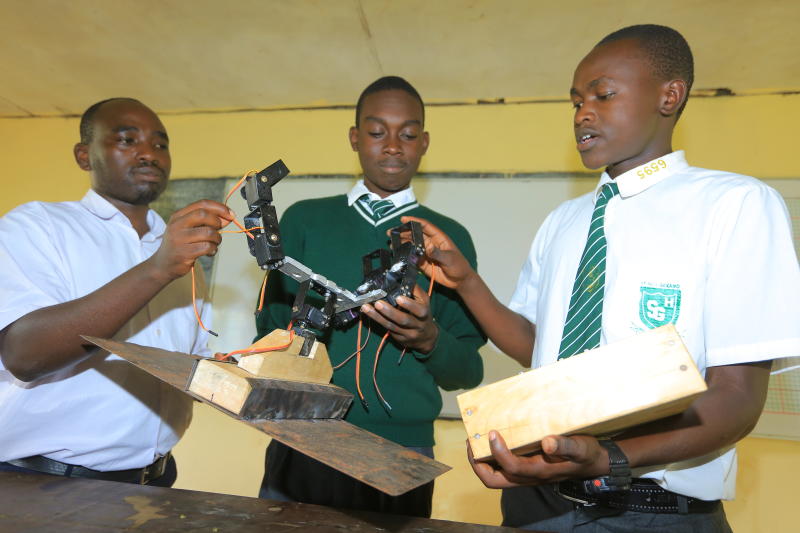×
The Standard e-Paper
Join Thousands Daily

Armed with a projector, a laptop and a laser pointer pen, Edwin Mogusu, a teacher of physics, is ready to start the day’s lesson.
It is a hot afternoon at St Paul’s Gekano Boys Secondary School in Nyamira County, and most students would easily doze off in the middle of a lesson. But Mr Mogusu is certain that he has the attention of all his students throughout the lesson.